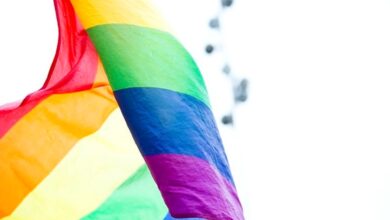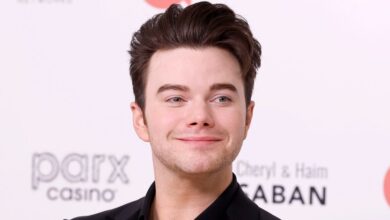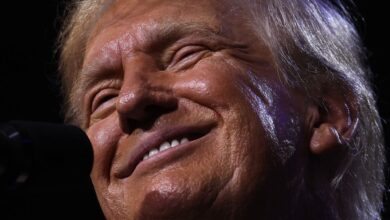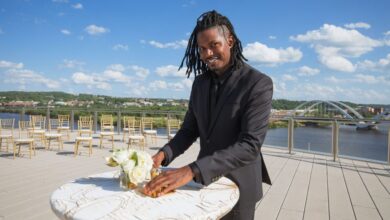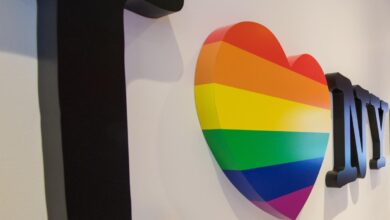How She Built A Successful Music Festival For LGBTQ Women
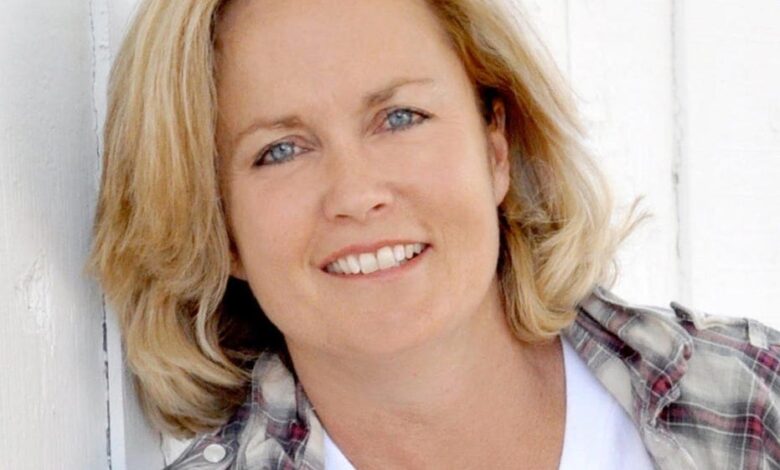
Mariah Hanson is the founder behind The Dinah, known as the world’s largest party and music festival for lesbians and women of all backgrounds.
Started by Hanson in 1991, the event has grown to become a five-day celebration in Palm Springs attracting 15,000 attendees annually to listen to music, attend parties and connect with other queer women.
Over the last 27 years, The Dinah has featured both straight allies and queer entertainers, DJs, dancers, comedians and celebrities like Margaret Cho, Lady Gaga, Rosie O’Donnell, Kesha, Pat Benatar, Katy Perry, India.Arie, the cast of the L Word and others.
We discussed what motivated her to create the event, how she’s navigated success an entrepreneur for over the last two decades, how to take worthwhile risks and what her biggest challenge has been as an LGBTQ leader.
Brian Honigman: In an interview with Locale Magazine you mentioned that you’ve always thrown parties and this segued into a career. What was your initial motivation to create an event celebrating lesbian pride?
Mariah Hanson: Well, I started off throwing parties in college and found I was quite adept at it. When I came out as a lesbian it was a natural segue to present parties for lesbian women.
I felt that marketing to them directly was important because it wasn’t happening. I wanted to offer a space that was safe, inclusive and celebratory.
I think it’s really important even in the face of are integration more and more into what can be identified as mainstream society, we still have a unique culture that is LGBTQ.
There is something to be said for getting together in our own spaces and celebrating our lives in the face of that unique culture that I will always believe is critically important to our collective health as a community.
Honigman: What lessons can you share with other entrepreneurs about creating a successful event?
Hanson: Invite everyone to the table. Our community is incredibly diverse. So many parts of our community are still marginalized by the aggregate whole. Within the context of what you’re doing, invite everyone to the table.
I’m a lesbian event producer. I want everyone lesbian out there at my event. That means they need to see themselves in my advertising, in our outreach and in the way we identify as an event.
I think that’s critically important in our community because we are only as strong as our weakest link. If we are going to talk in bold strokes about leaving no one behind, then we actually have to initiate that pervasively.
Because everything is everything. I think that’s one of the more important things we focus on when we message the Dinah.
Honigman: Can you talk about the specifics of how you’re diversifying the way the event is structured and communicated?
Hanson: My staff is diverse. Our outreach is diverse. Our advertising is diverse. We chose artists that represent different styles of music and different backgrounds.
However, the one common denominator in everything that we do at the Dinah is to increase the visibility of all who identify with being a woman and increase the profile of inspiring women who are sending out a message that it’s possible to break glass ceilings.
It’s possible to achieve success on our own terms and in our own way. It’s possible to do all this by being who we are authentically. We celebrate that because we think it’s a really important message especially today in the #MeToo movement and in the #TimesUp movement.
So we need role models and the Dinah looks at the event as how can we be the best role model as an event to inspire people to take what happens here and bring it home with them and live the ideology day-by-day — that there’s enough to go around, our differences make us stronger and living out loud is critical to a life well lived.
Honigman: The Dinah has also become a platform for artists and entertainers to reach the next level of their careers, not to mention a safe place for women of all backgrounds to meet. How can LGBTQ leaders develop a meaningful platform for themselves?
Hanson: It’s a really tough question because my event reflects who I am and the kind of leader that I am. I don’t think there’s a formula for leadership. What I’ve done speaks to who I am and what influence I have and how I’m able to integrate that influence and to identify ways that I can influence.
I don’t know that there’s a boilerplate answer to that question as there’s as many different types of ways to be a leader as there our leaders. Be authentic, be who you are, live your passion. Because there’s a lot of voices that we all deal with that try to modulate who we are and how we show up in the world.
I think it’s dangerous for leaders to modulate their passions, to modulate what they believe to be true. Put your fears aside and move forward and send out the message that’s true to your heart that your passion about because people will feel that and believe you.
Honigman: It’s clear that you’re a risk taker in your career. In 2011, you wrote about your experience booking the Pussycat Dolls for the Dinah which was the first time you spent a big portion of your budget on talent. The bet paid off as that investment ended up being a big success for the festival. How would you recommend LGBTQ entrepreneurs take more risks in their businesses?
Hanson: Risk is inherent in success. Playing it safe doesn’t serve you, doesn’t serve your customers and really, it doesn’t serve the world. The real adventure in life is out on that limb with that tree branch shaking. In that sense, a little bit of fear is probably really healthy because you can use fear in a lot of ways.
The best advice I could give any young entrepreneur is to go out on that limb because there’s only two types of people when it really gets down to it in terms of business: people who dream about it and people who make those dreams realized. It’s really about taking action, stop thinking and start doing.
But again, it’s all connected. You can’t go out on that limb because you see dollar signs. There’s nothing wrong with making money, especially if you love what you’re doing. There is something wrong with allowing any fear to prevent you from realizing your dreams and your passions.

